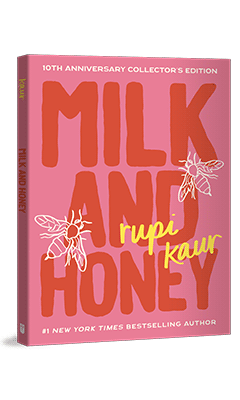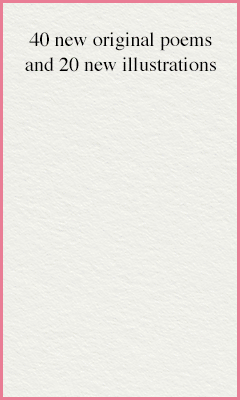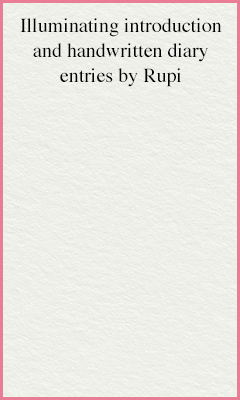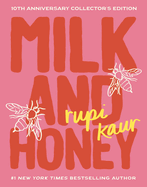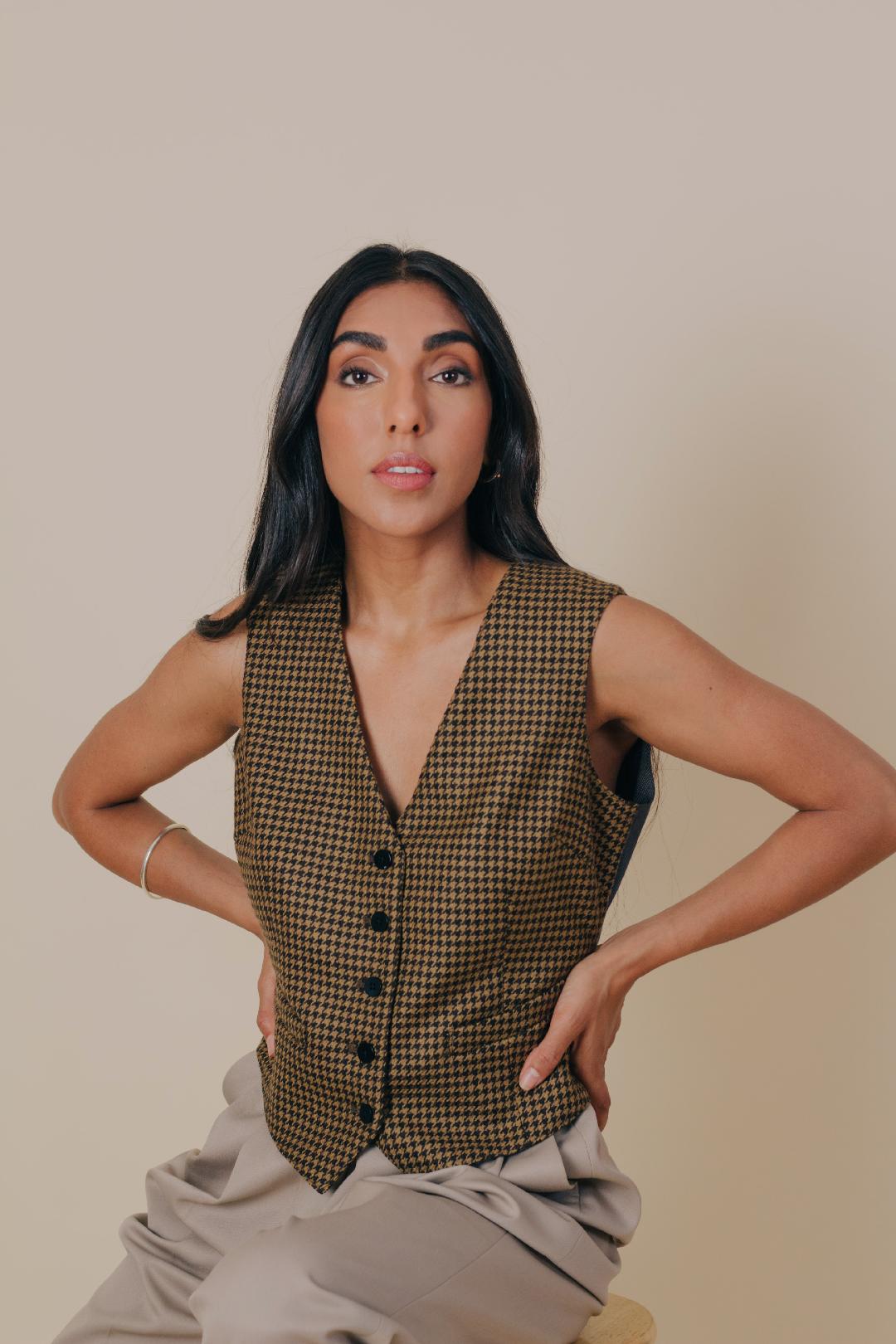 |
Rupi Kaur
(photo: Baljit Singh) |
Rupi Kaur is a Canadian author of Punjabi Sikh heritage. She wrote most of her debut, milk and honey, while in college at Waterloo, Ontario, and honed her craft on Tumblr and Instagram and in open mic performances. milk and honey is one of the bestselling poetry books of the 21st century; it was originally self-published in November 2014. Her other books are the poetry collections the sun and her flowers (2017) and home body (2020), and the guided journal Healing Through Words (2022). Andrews McMeel is re-releasing milk and honey in a special 10th anniversary collector's edition (October 1, $24.99).
In the new chapter "the journey," you reveal that the poem always comes first for you, but the accompanying drawing follows quickly. Do you think about writing and art as using two different sides of your brain or tapping into two aspects of your personality, or is it more fluid than that?
It's definitely a lot more fluid than that. I feel like both the writing and the art come from the same part of my brain. I use the two mediums to express the same idea and I bring them together because the poems can do things the art can't do, and the art can do things for the reader that the poems can't do. And when I bring them together they can create a more impactful experience for the reader. Art was my first love. I started drawing when I was five and later began painting. I wanted to be a visual artist until I found the art of performance and it took my breath away. Then I began writing poetry to perform it on stage.
With the handwritten addenda on the poetry, you call attention to the interplay between then and now, almost like you're having a dialogue with your younger self. What are some of the key things you would tell the Rupi of 10 years ago?
I would tell my younger self to be much kinder to herself. God, was I tough on myself--and for what? I look back and think: I could've cut myself some slack emotionally and mentally. I would tell myself to expect to encounter many gatekeepers who say my dreams aren't possible--and that for every yes, there might be 100 no's--but just keep going and you'll find a way. I would also say: there will come a day when you look back on some of the things you wrote and feel SO differently about yourself and what you are experiencing. The pain will go away, you will love and be loved again, and 10 years later you'll still be asking yourself what love means to you, so don't punish yourself for not having all the answers right now--just choose happiness.
The guest commentary enhances the retrospective nature of this collector's edition. How did you decide to get these six women involved, and what do you feel that their words add to yours?
The six women who contributed to this edition are all dear friends who have been with me throughout my journey and touched me in various ways. Some have been by my side since middle school and were next to me while I experienced everything I've written about in milk and honey. Some have been with me since college as I was writing and releasing the book. And some I only connected with in recent years as women, artists, and activists. I wanted to include women who were touched by the book at different points in their lives because the guest commentary was also a way of celebrating the community that milk and honey has helped me build, and the fact that this book has become so much bigger than me, as it means so many different things to different people.
There are some frank disclosures here about members of your family. What sort of reactions did you receive from your parents and more distant relatives when this book was published? (For instance, you mention that the page where the text of a poem covers female genitals was your mother's least favorite drawing in the book.)
Ha ha! My parents are on board. They don't get too into questioning any of it because they know it's my art and I appreciate them for giving me that grace. Ten years ago, when I handed my mom the first copy of milk and honey, the page with the genitals was the first page she saw and I still remember her rolling her eyes and saying, "Oh my goodness, really? You couldn't pick anything else to draw?!" My family has played a big role in my journey. They've supported me every step of the way. When I first published milk and honey, my siblings were still in middle school and high school, and they helped me hand-sell copies of the book at the back of venues at any events I performed at. They were my pseudo managers, assistants, and so much more. My family is my strength. When it comes to the more sensitive pieces that touch on my family history, my parents tend to ignore the ones that make them uncomfortable, but no one has ever censored my work or silenced or shamed me for anything I've written.
The final poem, "a love letter from me to you," reminded me of a prayer. How would you describe your spiritual beliefs (or lack thereof)? What have you taken with you from your Sikh upbringing?
I am very moved and inspired by my Sikh upbringing. In the ways that I was taught to explore Sikhi, human rights were at the center of everything. This instilled a lot of empathy in me. The duty to fight against oppression--and fight for the freedom of all disenfranchised people--was at the core of Sikhi and what the community has been doing for centuries. The poetry, the music, the art, the history--it all gives me so much strength in the most challenging moments. We have survived genocides. Our ancestors sacrificed so much for us to be here today. When life gets hard, I think about that history and I realize that if we could survive all of that, I can survive anything I'm up against today. I feel really grateful to have access to this heritage and history.
How do you see yourself as leaving a legacy or paving the way for others--in terms of self-publishing, Instagram poetry, or just self-disclosure in general?
My hope is that my work inspires readers to speak up about their experiences and to find the courage to move forward. I hope it encourages them to find a medium that allows them to process and understand their own experiences, while reminding them to persevere and celebrate all their successes. I also hope that my work expands the boundaries of who is allowed to take up space and have their voices heard, both in the publishing industry and in the world at large. --Rebecca Foster



